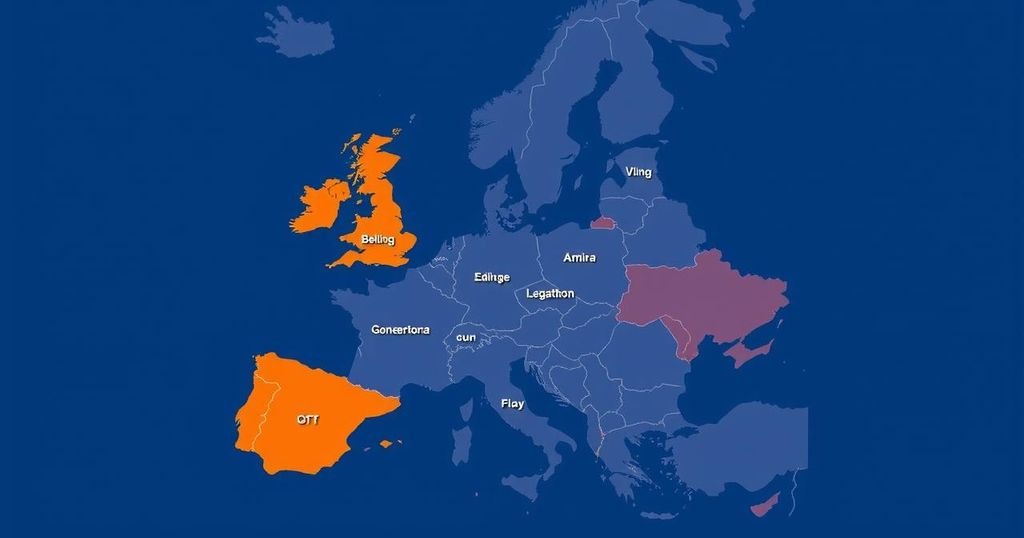Donald Trump’s election signals a shift towards global protectionism that threatens Europe’s economic stability. He plans to impose major tariffs on imports, which may impact trade balances and consumer prices. The EU faces the challenge of formulating a response amidst its own economic difficulties and must contend with potential declines in purchasing power in the U.S. driven by these tariffs.
The recent election of Donald Trump is poised to usher in a period of global economic protectionism not seen since the 1930s. Promising to impose significant tariffs—ranging from 10% to as much as 60% for certain countries—Trump’s administration poses a challenge for Europe, which is currently grappling with its own sluggish growth and diminished leadership. The European Union (EU) must devise an effective strategy to mitigate the potential fallout from these policies amidst increasing pressure from Chinese exports and economic instability within member states. Trump has heralded protectionism as a cornerstone of his economic policy, asserting its benefits, including reducing trade deficits and revitalizing American manufacturing. He famously stated, “Tariff is the most beautiful word in the dictionary.” However, equating tariffs with economic prosperity overlooks the complexities of trade dynamics. Tariffs primarily affect pricing and do not inherently remedy the fundamental macroeconomic issues linked to savings, investment, and consumption. The U.S. faces a trade scenario where increased household and business expenditures lead to greater imports and consequently, a widened trade deficit. Efforts to impose tariffs without addressing underlying economic imbalances are largely symbolic and ineffective. During his initial term, Trump’s protectionist measures did not curtail the trade deficit; in fact, it surged by 25% without yielding the anticipated gains in industrial employment. This contradiction illustrates the limited scope of tariffs in affecting trade balances. While the protectionist approach yielded political dividends—bolstering Trump’s support base—its economic ramifications may stifle growth. According to the National Retail Federation, the proposed tariffs could diminish U.S. consumer purchasing power by $46 billion to $78 billion, especially impacting essential goods such as clothing and appliances. Ultimately, Trump’s struggle against inflation may paradoxically exacerbate it by increasing costs for the consumers he aims to support. Europe now stands at a critical juncture. As it navigates the complexities of its own economic challenges and a shifting global landscape, the strategies it develops in reaction to Trump’s trade policies will be vital in determining its resilience in the years to come, especially in a time characterized by an apparent decline in leadership and economic performance in the region.
The election of Donald Trump marks a significant shift in global economic policy, particularly concerning trade. His administration’s focus on protectionism introduces the potential for severe economic consequences, especially for Europe, which currently faces a myriad of challenges, including weak growth and external competition from China. This article explores the ramifications of Trump’s trade policies and their implications for the European Union in a rapidly changing economic environment.
In conclusion, Donald Trump’s election has the potential to redefine international trade dynamics, pushing Europe into a precarious position as it contemplates its response to a surge in U.S. protectionism. While the political allure of tariffs resonates with Trump’s base, the economic realities reveal a more complex picture. Europe’s strategic navigation through these turbulent waters will determine its ability to maintain competitiveness and stability within the global market.
Original Source: www.lemonde.fr






